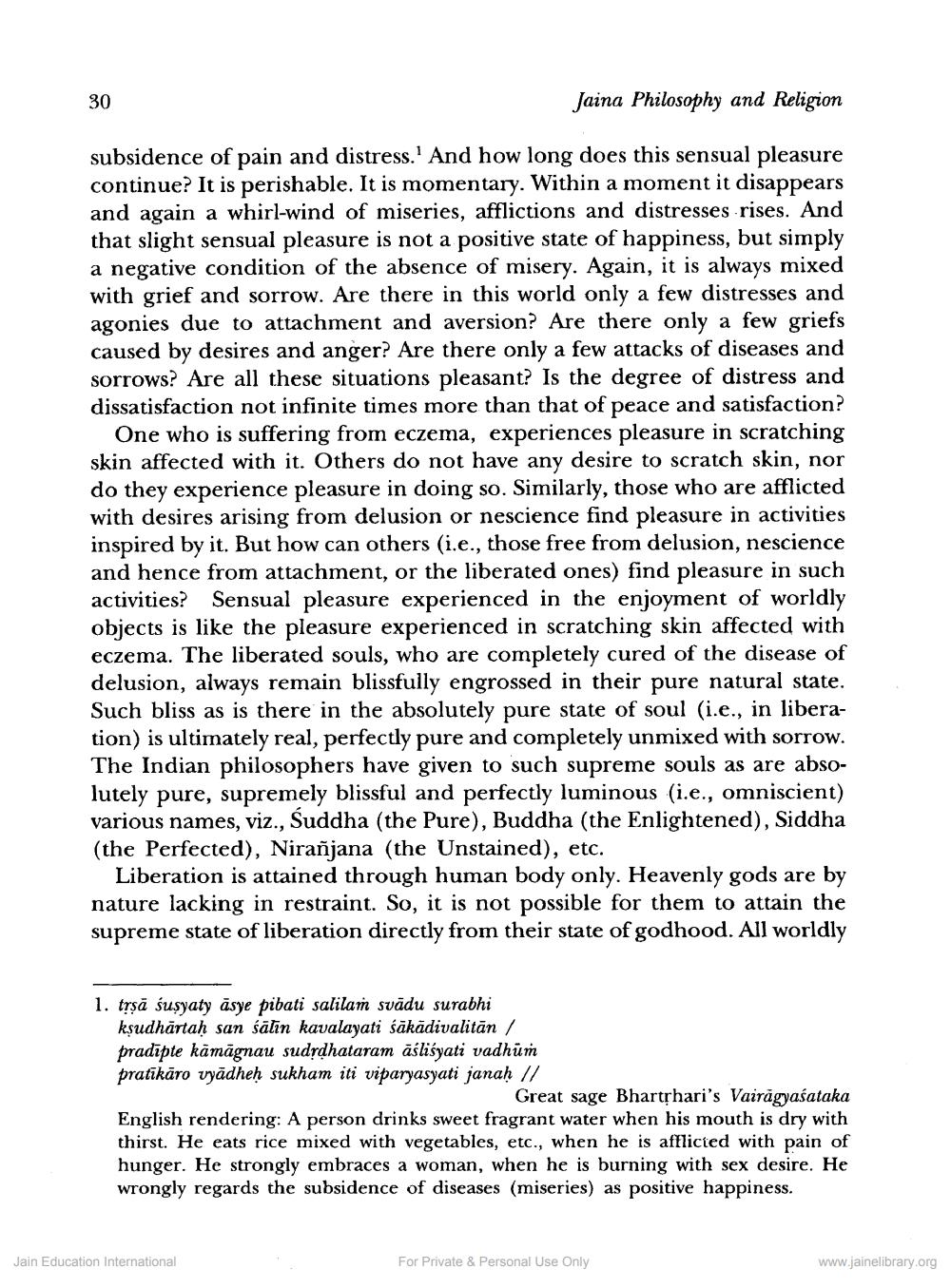________________
Jaina Philosophy and Religion
subsidence of pain and distress.' And how long does this sensual pleasure continue? It is perishable. It is momentary. Within a moment it disappears and again a whirl-wind of miseries, afflictions and distresses rises. And that slight sensual pleasure is not a positive state of happiness, but simply a negative condition of the absence of misery. Again, it is always mixed with grief and sorrow. Are there in this world only a few distresses and agonies due to attachment and aversion? Are there only a few griefs caused by desires and anger? Are there only a few attacks of diseases and sorrows? Are all these situations pleasant? Is the degree of distress and dissatisfaction not infinite times more than that of peace and satisfaction?
One who is suffering from eczema, experiences pleasure in scratching skin affected with it. Others do not have any desire to scratch skin, nor do they experience pleasure in doing so. Similarly, those who are afflicted with desires arising from delusion or nescience find pleasure in activities inspired by it. But how can others (i.e., those free from delusion, nescience and hence from attachment, or the liberated ones) find pleasure in such activities? Sensual pleasure experienced in the enjoyment of worldly objects is like the pleasure experienced in scratching skin affected with eczema. The liberated souls, who are completely cured of the disease of delusion, always remain blissfully engrossed in their pure natural state. Such bliss as is there in the absolutely pure state of soul (i.e., in liberation) is ultimately real, perfectly pure and completely unmixed with sorrow. The Indian philosophers have given to such supreme souls as are absolutely pure, supremely blissful and perfectly luminous (i.e., omniscient) various names, viz., Suddha (the Pure), Buddha (the Enlightened), Siddha (the Perfected), Nirañjana (the Unstained), etc.
Liberation is attained through human body only. Heavenly gods are by nature lacking in restraint. So, it is not possible for them to attain the supreme state of liberation directly from their state of godhood. All worldly
1. tyşa susyaty asye pibati salilam svādu surabhi
kşudhārtah san sālin kavalayati sākādivalitān/ pradīpte kāmāgnau sudrdhataram äśliśyati vadhüm pratikāro vyādheh sukham iti viparyasyati janah //
Great sage Bhartshari's Vairāgyaśataka English rendering: A person drinks sweet fragrant water when his mouth is dry with thirst. He eats rice mixed with vegetables, etc., when he is afflicted with pain of hunger. He strongly embraces a woman, when he is burning with sex desire. He wrongly regards the subsidence of diseases (miseries) as positive happiness.
Jain Education International
For Private & Personal Use Only
www.jainelibrary.org




